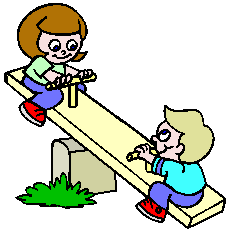AnxietyPath is a safe community environment supported by professional counselors. We are a free self help destination to receive support and guidance for recovery from anxiety and phobias
During Anxiety Recovery We Have To Create Change
 During recovery, we will have many peaks & valleys. Good days and bad days. This is normal and should be expected by everyone. No one is exempt from experiencing the peaks & valleys that happen during recovery.
During recovery, we will have many peaks & valleys. Good days and bad days. This is normal and should be expected by everyone. No one is exempt from experiencing the peaks & valleys that happen during recovery.
It is important to remember during recovery to accept whatever comes, without judging it or expecting it to continue.
When our lives are governed by emotions it is easy for us to get swept away with whatever emotion we are feeling at that particular moment. When we are having a good day, we fall into the false sense of security that this is the way we will always be. Likewise, when we are having a bad day, we fall into the same type of thinking in that we believe that this is the way we will always be.
The other thing that happens during recovery is that a lot of people experience over exaggerated emotional swings. In other words, when we feel good, we typically feel extremely good; to the point that we feel as if we are very far away from feeling bad. And when we feel bad, we typically feel extremely bad; to the point that we feel as if we are very far away from feeling good.
I refer to this as the “see-saw” syndrome. Sitting on the end of the see-saw, we experience the highs as really high, and the lows as really low.
This happens simply because we are so focused on our emotions. And we allow our emotions to dictate our lives. I refer to this as “emotional drifting”, which I have spoken about previously. We believe what our emotions tell us, and our behavior follows. And we never question this from an intellectual point of view.
When we are able to live life more from an intellectual point of view, we will be more accepting of the changes in our mood and not be so attached to one or the other.
The way I like to visualize this is by thinking of the see-saw; on the ends of the see-saw we over commit to each of the highs and lows. But as we move towards the center of the see-saw we still experience changes in our emotions, but not to the extremes. Sitting on the ends of the see-saw is “emotional drifting” and the center of the see-saw is intellectual living.
This is why during recovery it is extremely beneficial for us to approach everything in our life from an intellectual point of view. The more we allow our emotions to run unchecked and we cater to our emotions, the more they will grow in control over us.
Certainly, it is impossible to approach everything in our lives from an intellectual point of view. But we can take advantage of the things we can. And this is where I always point out we can’t change everything at once, there is certainly a process and recovery is a journey. But we have to do what we can when we can.
In other words, as a non-runner, if I wanted to run a marathon would it be realistic to think I could get up right now and run 20+ miles? Of course not. Right now I would have to start with a slow jog around the block.
The same thing applies to recovery from anxiety disorders. You may not be able to go through the entire day without feeling levels of anxiety, but what can you do? How can you start to create a change in your life today? How can you start to live life more intellectually today?
The absolute minimum to start with is practicing the tools & techniques. I refer to the tools & techniques as the Holy Grail for recovery from anxiety disorders. Read my recent posts about the Physical and Mental tool and engage this process. Daily! Even if you have to set an alarm morning and/or night to practice, do it. When you stop whatever you are doing to practice these tools & techniques you are living life intellectually. You are telling yourself that your recovery is important to you and you are willing to make it happen! Emotionally you may feel like watching television, or listening to music; do not allow your emotions to prevent you from engaging the process of recovery.
After the implementation of the tools, the next best thing you can do for yourself is self-care. This is simply because when we are emotionally drifting we cater to our emotions, and this usually entails unhealthy choices for ourselves. Anxiety disorders consume us, and they make us forget to pay attention to ourselves.
When people are just starting out with recovery, and they are having a difficult time implementing any changes for self-care, I always suggest trying to drink enough water during the day. That’s all. Most people are dehydrated most of the time; it amazes me how something so basic gets completely overlooked. But just paying attention to the consumption of water is extremely effective in helping us to live intellectually.
Once the tools and water consumption become a little easier to complete each day, then you can start to add on. During recovery we have to start somewhere and then as a foundation is established then we can continue to build on it.
If you do not start, when will recovery be created?
Fear To Fearless
Categories
© 2020 AnxietyPath Powered by G SOUL INC